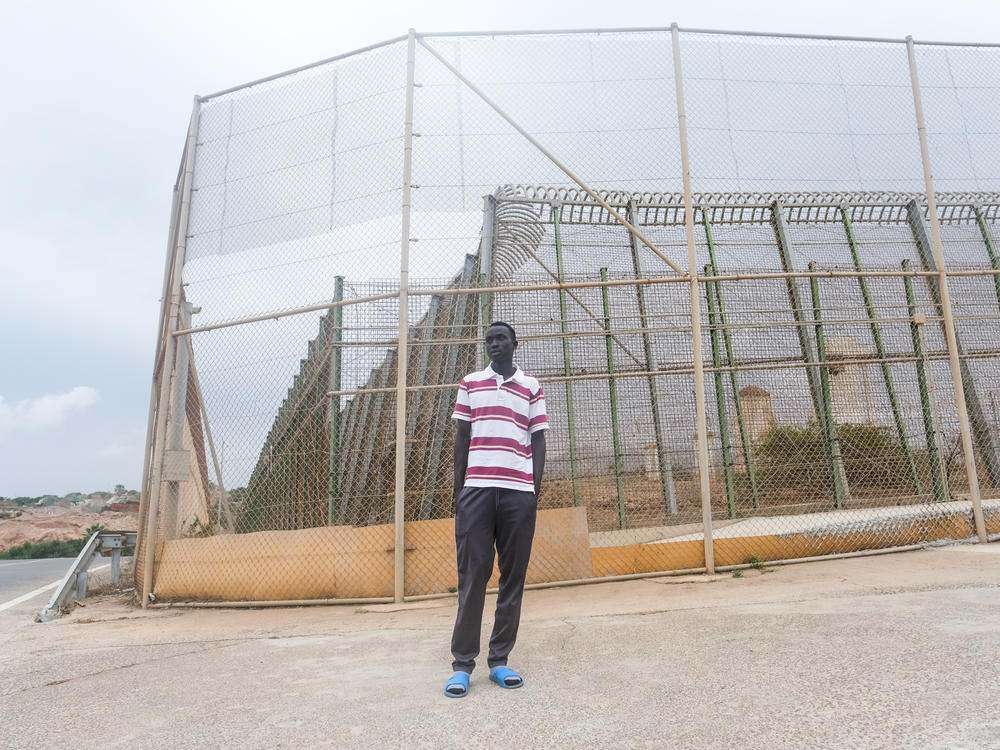Section Branding
Header Content
Dozens died trying to cross this fence into Europe in June. This man survived
Heard on
Primary Content
To visit a popular transit point into Spain, you have to go to Africa. There, you will find Melilla, a city perched on the edge of the Mediterranean Sea.
Migrants spend years trying to get there.
This has provoked severe border restrictions by Spanish officials.
"Melilla today is like a bunker. It's like living in an island," says Irene Flores, a longtime Spanish journalist in Melilla.
The Spanish enclave city has changed in the last few decades, making it all the more difficult for people like Steven Khon Khon to enter
Listen to our full report by clicking or tapping the play button above.
Copyright 2022 NPR. To see more, visit https://www.npr.org.

